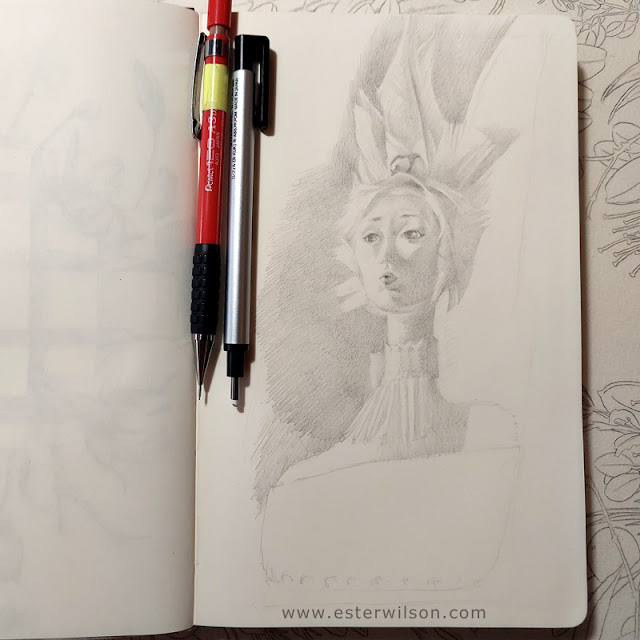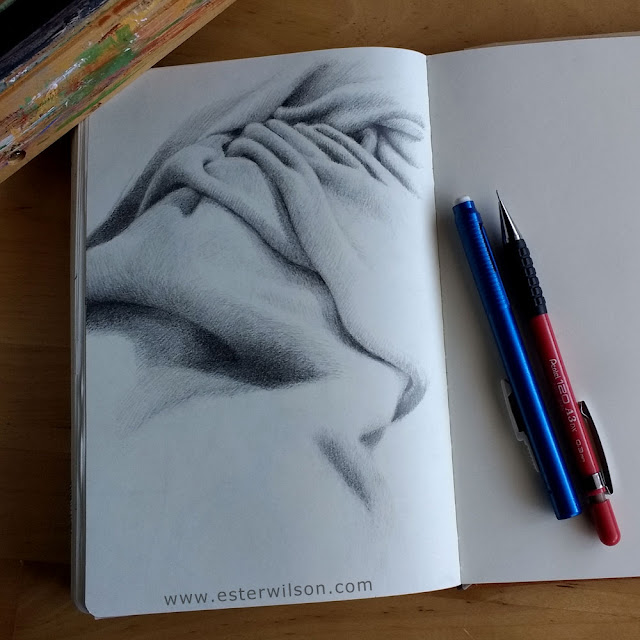a question of quality
 I read something I thought was worth sharing today, from the book, "Zen and the Art of Motorcycle Maintenance", by Robert Pirsiq.
I read something I thought was worth sharing today, from the book, "Zen and the Art of Motorcycle Maintenance", by Robert Pirsiq.the story is a professor giving a student writing homework:
'...one of them, a girl with strong-lensed glasses, wanted to write a 500 word essay about the United States. He was used to the sinking feeling that comes from statements like this, and suggested without disparagement that she narrow it down to just Bozeman.
When the paper came due she didn't have it and was quite upset. She had tried and tried but she just couldn't think of anything to say.
He had already discussed her with her previous instructors and they confirmed his impressions of her. She was very serious, disciplined and hardworking, but extremely dull. Not a spark of creativity in her anywhere. Her eyes, behind the thick-lensed glasses, were the eyes of a drudge. She wasn't bluffing him, she really didn't have anything to say, and was upset by her inability to do as she was told.
It just stumped him. Now he couldn't think of anything to say. A silence occurred, and then a peculiar answer. "Narrow it down to the Main Street of Bozeman". It was a stroke of insight.
She nodded dutifully and went out. But just before her next class she came back in real distressed, tears this time, distress that had obviously been there for a long time. She still couldn't think of anything to say, and couldn't understand why, if she couldn't think of anything about ALL of Bozeman, she should be able to think of something about just one street.
He was furious. "You're not LOOKING!" he said. A memory came back of his own dismissal from the University for having too much to say. For every fact there is an infinity of hypotheses. The more you look, the more you see. She really wasn't looking and yet somehow didn't understand this.
He told her angrily, "Narrow it down to the front of one building on the Main Street of Bozeman. The Opera House. Start with the upper left-hand brick."
Her eyes, behind the thick-lensed glasses, opened wide.
She came in the next class with a puzzled look and handed him a 5000 word essay on the front of the Opera House on the Main Street of Bozeman, Minnesota. "I sat in the hamburger stand across the street", she said, "and started writing about the first brick, and then the second brick, and then by the third brick it all started to come and I couldn't stop. They thought I was crazy, and they kept kidding me, but here it all is. I don't understand it."
Neither did he, but on long walks through the streets of towns he thought about it and concluded she was evidently stopped with the same blockage he was paralyzed with on his first day of teaching. She was trying to repeat, in her writing, things she had already heard, just as on the first day he had tried to repeat things he had already decided to say. She couldn't think of anything to write because she couldn't recall anything she had heard worth repeating. She was strangely unaware that she could look and see freshly for herself, as she wrote, without primary regard for what had been said before. The narrowing down to one brick destroyed the blockage because she realized she had to do some original and direct seeing.


That's a beautiful drawing, Ester!
ReplyDeleteTotally and completly awsome. I HATE painting bricks!! But, for some reason most of my paintings end up with some type of repetative pattern, like bricks, in them. I tend to spend too much time on each brick, trying to make it different. Part of other patterns. And, usually this happens more on the paintings I think I already know what I'm going to paint.
ReplyDeleteI should add that book to my list. Thanks.
That's one of my favourite reads. I'm halfway through Lila, the sequel, and the philosophy's getting clearer by the page. I liked when he quotes Einstein; common sense is just a collection of prejudices acquired with age.
ReplyDeleteIt's true, we have to throw away our preconceptions and start from scratch. Picasso, of course; every child is an artist, the trick is to remain so when we grow-up.
Here I am quoting others when I should be coming up with my own words! ;o)
I like the drawing, is it from observation or imagination?
yeah! I love the book too, it's really intriguing. Along with your quote on Picasso, another part I found great was how Pirsig mentions that children are one of the best judges of quality, prior to society's stranglehold to "cultivate" them.
ReplyDeleteThe drawing is from a photograph I found online, and I feel bad not mentioning credit to the photographer...I should do better to find the name.
Yes!1 One of my favorite books. To see photos taken by Author Robert Pirsig and photos illutrtating Zen and the Art of Motorcycle Maintence goto:
ReplyDeletehttp://ww2.usca.edu/ResearchProjects/ProfessorGurr/gallery/